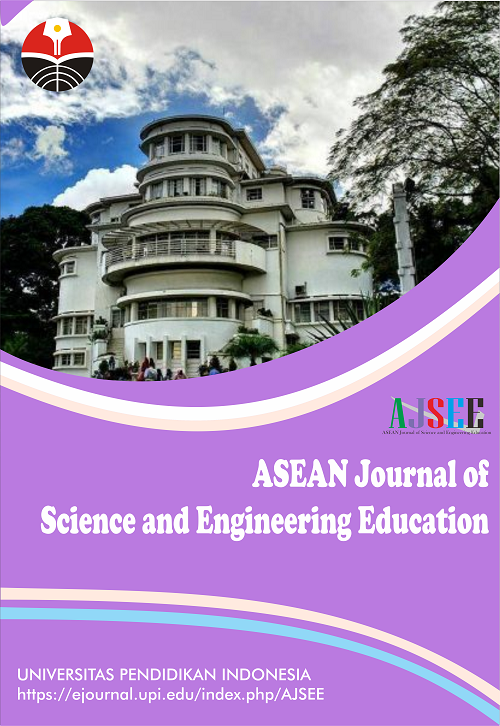Perceptions of Millennials on Filipino Superstitious Belief
Abstract
This study aims to cater to the millennials' perceptions of Filipino Superstitious Beliefs and how they can affect one person's behavior and performance. The study investigated the following questions: (1) What are the reasons why the chosen respondents believe in superstitions? (2) What are the effects of superstitions on the lives of millennials? (3) What are the perspectives of millennials nowadays on some Filipino superstitious beliefs? (4) How can superstitious beliefs affect one person’s performance and behavior? We used the qualitative method, specifically phenomenological in the research design. We conducted interviews and questionnaires. Data was recorded, analyzed, classified, and organized using necessary measurements and analyses. Believing in superstitions can be one of the basic traditions that are taught to Filipinos while they growing up. It is proven that not all millennials have forgotten the sense of believing in some Filipino superstitious beliefs. All responses from the participants had different senses of values. They also do have the same idea on how they can give back respect to our ancestors. Being superstitious can influence perspectives, giving impact to everything for making execution and decision. Indeed, it is on a specific test to the response to fake treatments. The study found out that millennials still believe in the power of superstitions based on their experiences, the traditions of their old ones, or even the ancestors. This study is an approach to clarify the understanding of superstitions in the current time.
Keywords
Full Text:
PDFReferences
Abad, R. G. (1995). Filipino religiosity: Some international comparisons. Philippine Studies, 43(2), 195-212.
Bai, M., Xu, L., Yu, C. F. J., and Zurbruegg, R. (2020). Superstition and stock price crash risk. Pacific-Basin Finance Journal, 60, 101287.
Hirshleifer, D., Jian, M., and Zhang, H. (2018). Superstition and financial decision making. Management Science, 64(1), 235-252.
Ichino, A. (2020). Superstitious confabulations. Topoi, 39(1), 203-217.
Li, Y., Wang, K., Ji, X., and Tang, Y. (2020). Financial psychology analysis of numerical superstitions and stock price volatility: Empirical evidences from China’s A-share market. Revista Argentina de Clínica Psicológica, 29(1), 279.
Luna, M. L., De Guzman, A. A., and Lacorte, J. L. (2019). Level of practice of superstitious beliefs among the students of callejon national high school: Basis for scientific literacy campaign. Tonyo’s Journal. 1(1), 21-35.
Mocan, N., and Yu, H. (2020). Can superstition create a self-fulfilling prophecy? school outcomes of dragon children in China. Journal of Human Capital, 14(4), 485-534.
Monaco, M., and Martin, M. (2007). The millennial student: A new generation of learners. Athletic Training Education Journal, 2(2), 42-46.
Ng, T., Chong, T., and Du, X. (2010). The value of superstitions. Journal of Economic Psychology, 31(3), 293-309.
Qotrunnada, Q., and Nurani, A. S. (2021) Teenagers Knowledge About Traditional West Java Cakes. Indonesian Journal of Community and Special Needs Education, 1(1), 15-18.
Razon, B. C. (2020). COVID 19: Impetus for “Community Spirits” among Filipinos. Indonesian Journal of Science and Technology, 5(2), 201-208.
Sultana, Z., Chowdhury, L., and Shapla, N. R. (2019). Study on superstitions related to pregnancy. Journal of National Institute of Neurosciences Bangladesh, 5(2), 172-176.
Trianti, R. (2021) The existence of Sunda Wiwitan among Sundanese people as a local belief in Indonesia. Indonesian Journal of Community and Special Needs Education, 1(1), 19-24.
Umesan, U. K., Bakar, N. A., Sani, S., and Balakrishnan, P. (2020). A veil of superstition unveiled–an exotic manifestation of susuk. International Journal of Research and Reports in Dentistry, 3(2),30-34.
Vernacchia, R. A., McGuire, R. T., Reardon, J. P., and Templin, D. P. (2000). Psychosocial characteristics of Olympic track and field athletes. International Journal of Sport Psychology, 31(1), 5–23.
Wakefield, J. C., Shipherd, A. M., and Lee, M. A. (2017). Athlete superstitions in swimming: Beneficial or detrimental?. Strategies, 30(6), 10-14.
Wisniawati, W., and Rasiban, L. M. (2021) Japanese pop culture (anime, j-pop, dorama) in increasing motivation to learn Japanese. Indonesian Journal of Educational Research and Technology, 1(1), 5-6.
Zad, R. E. (2014). Superstitious beliefs and some of its causes (case study: ghachsaran citizens). Bulletin of Environment, Pharmacology and Life Sciences, 3, 286-290.
DOI: https://doi.org/10.17509/ajsee.v1i2.33393
Refbacks
- There are currently no refbacks.
Copyright (c) 1970 Universitas Pendidikan Indonesia

This work is licensed under a Creative Commons Attribution-ShareAlike 4.0 International License.














